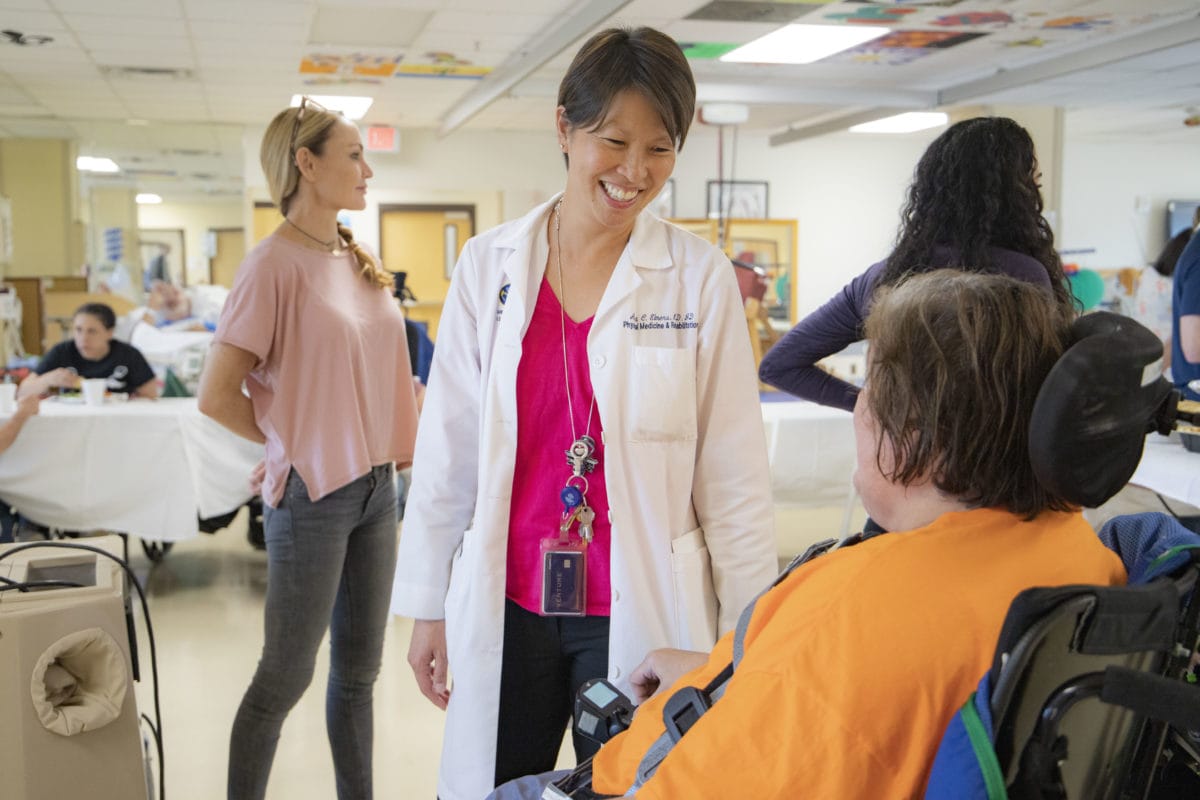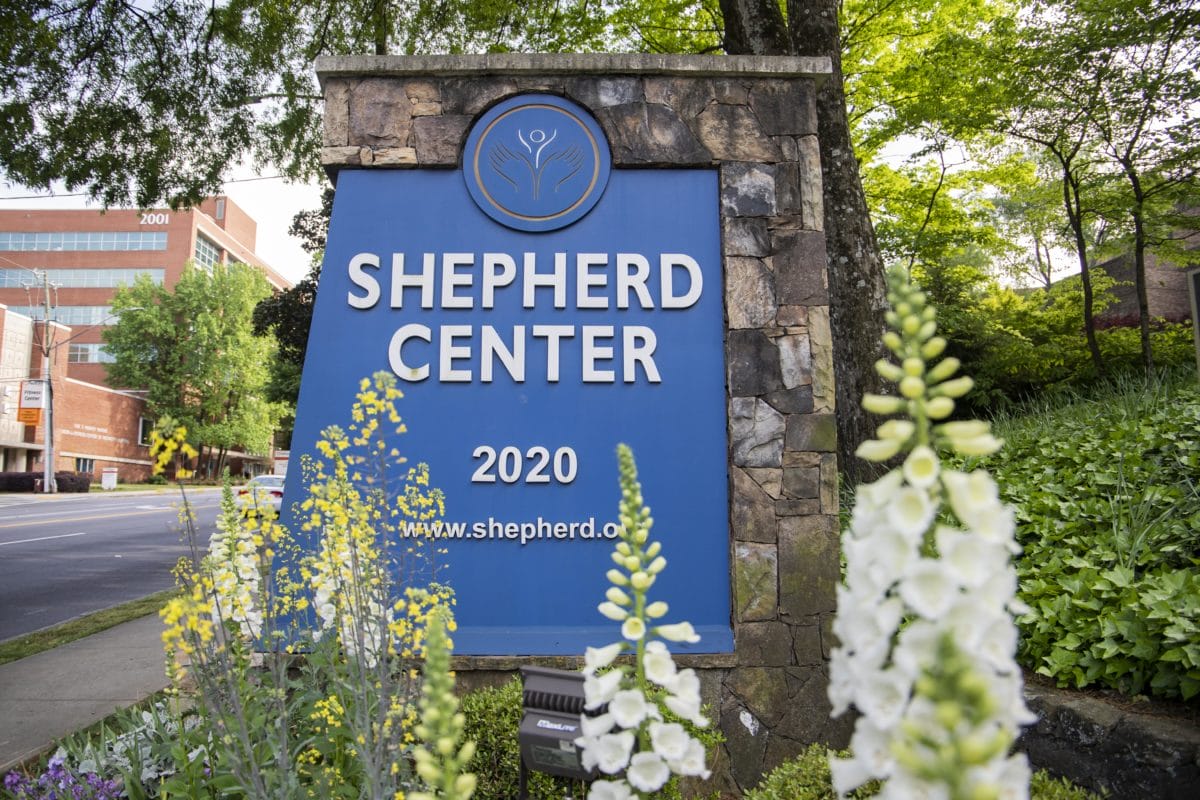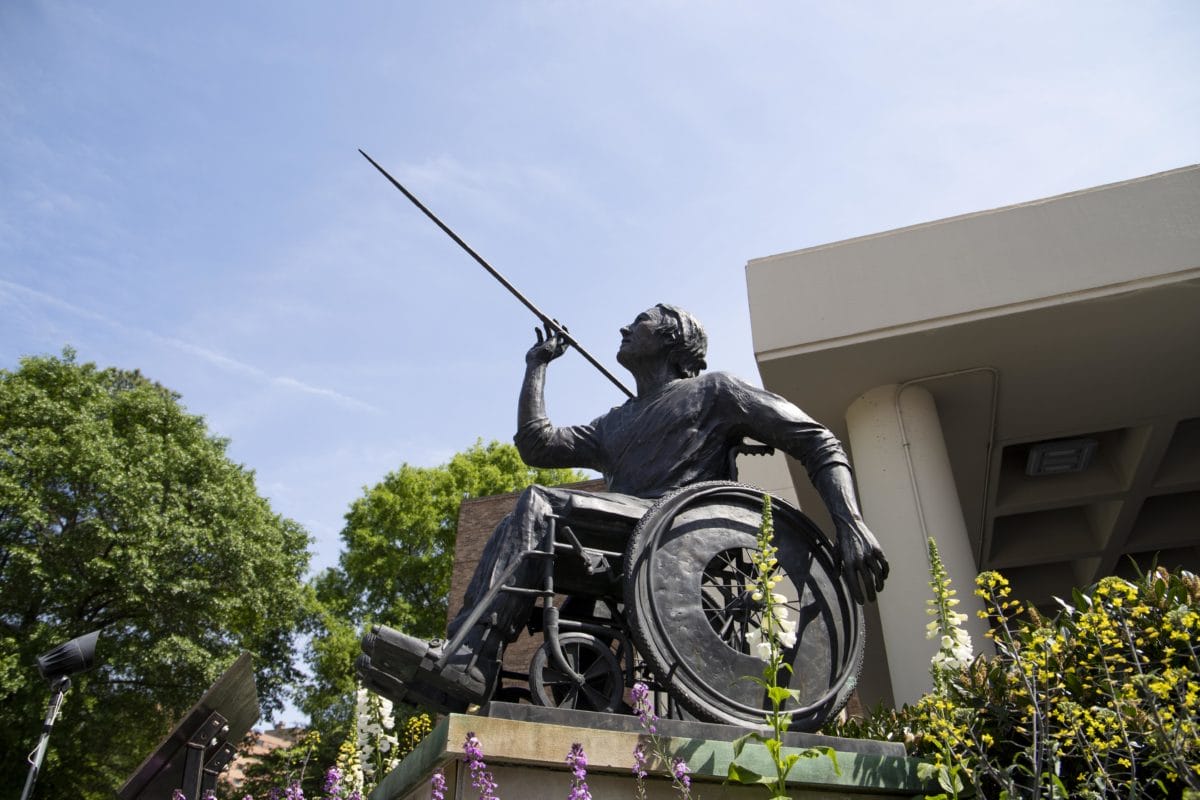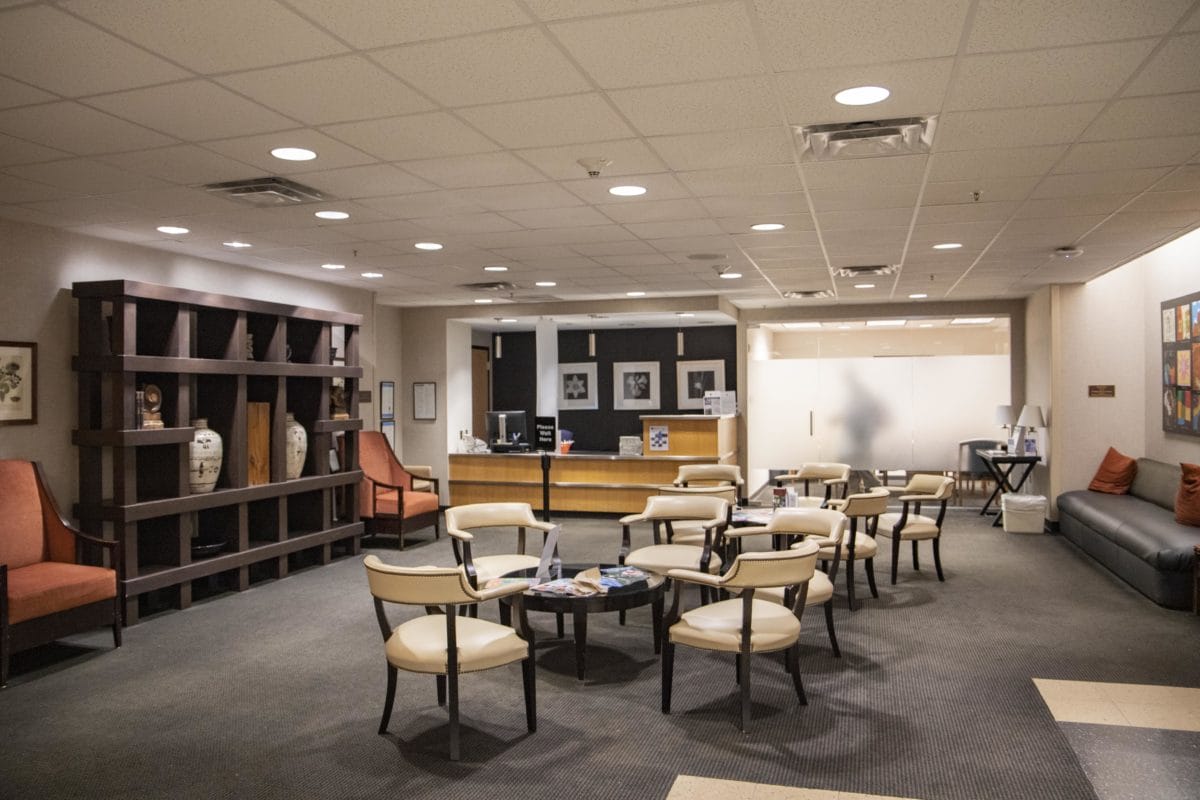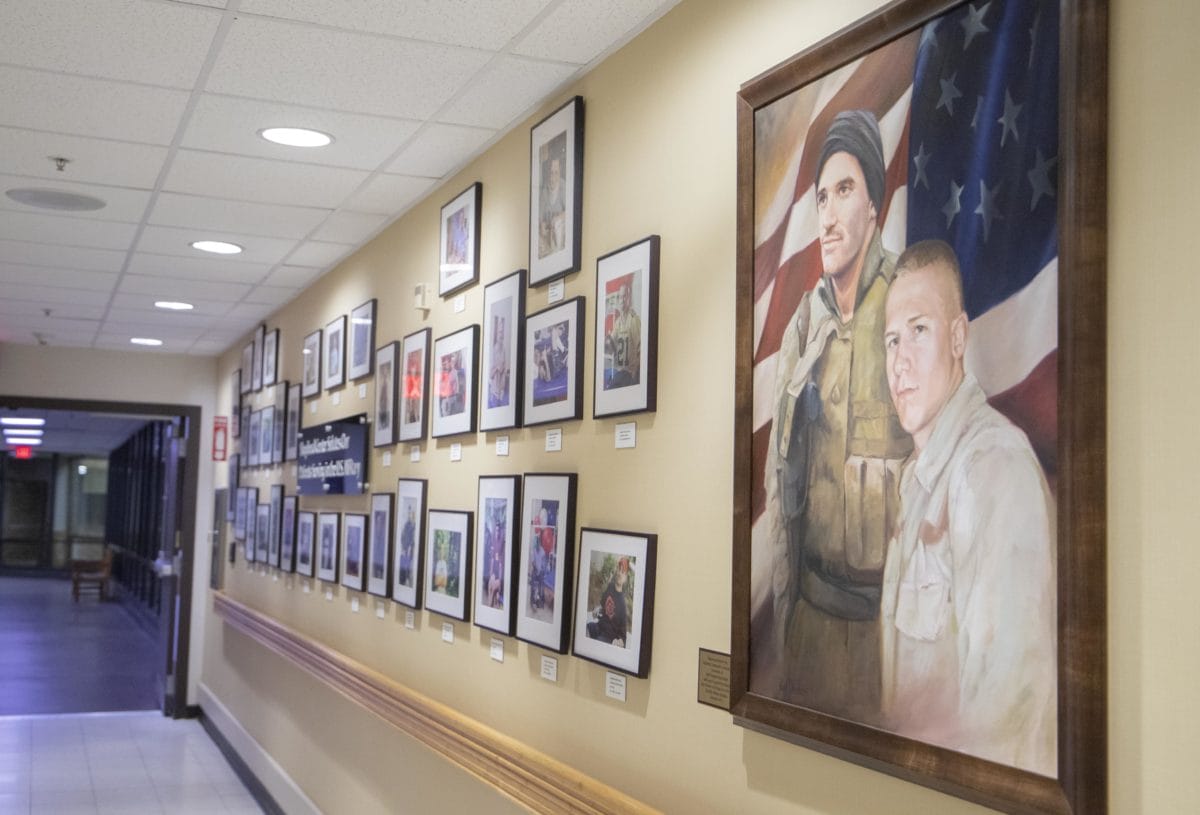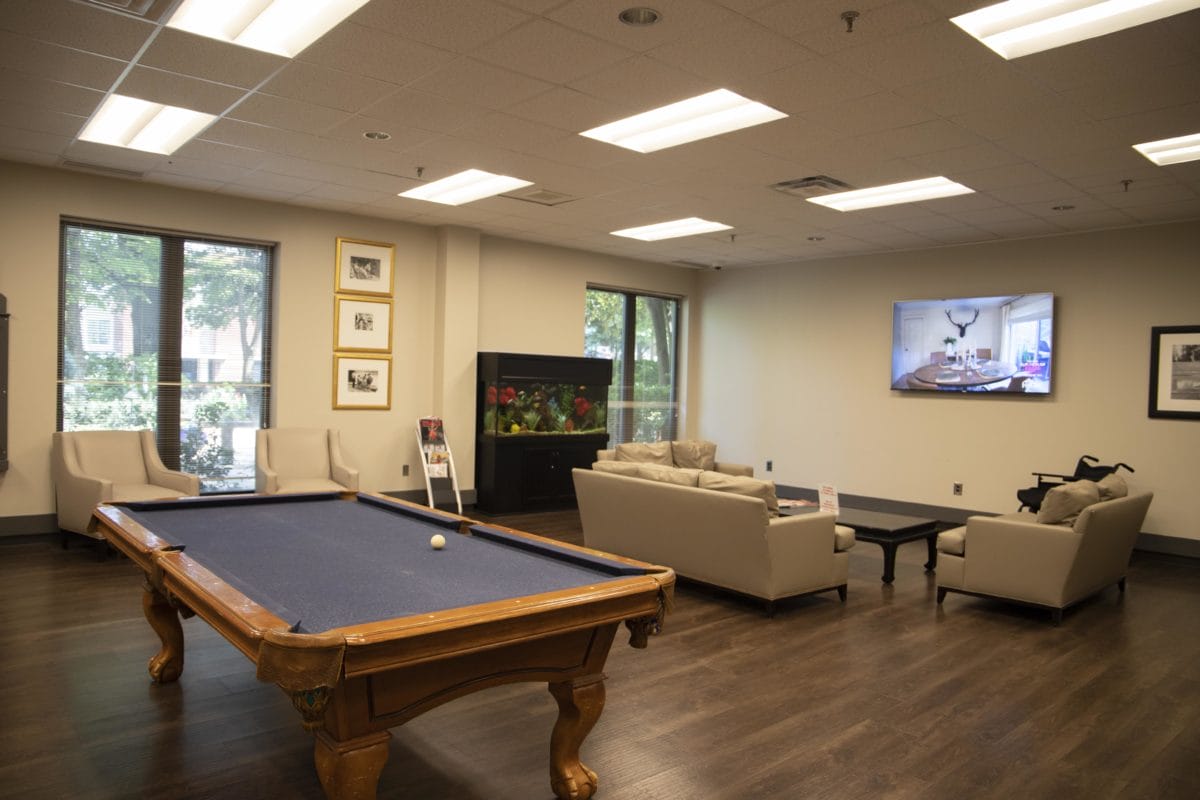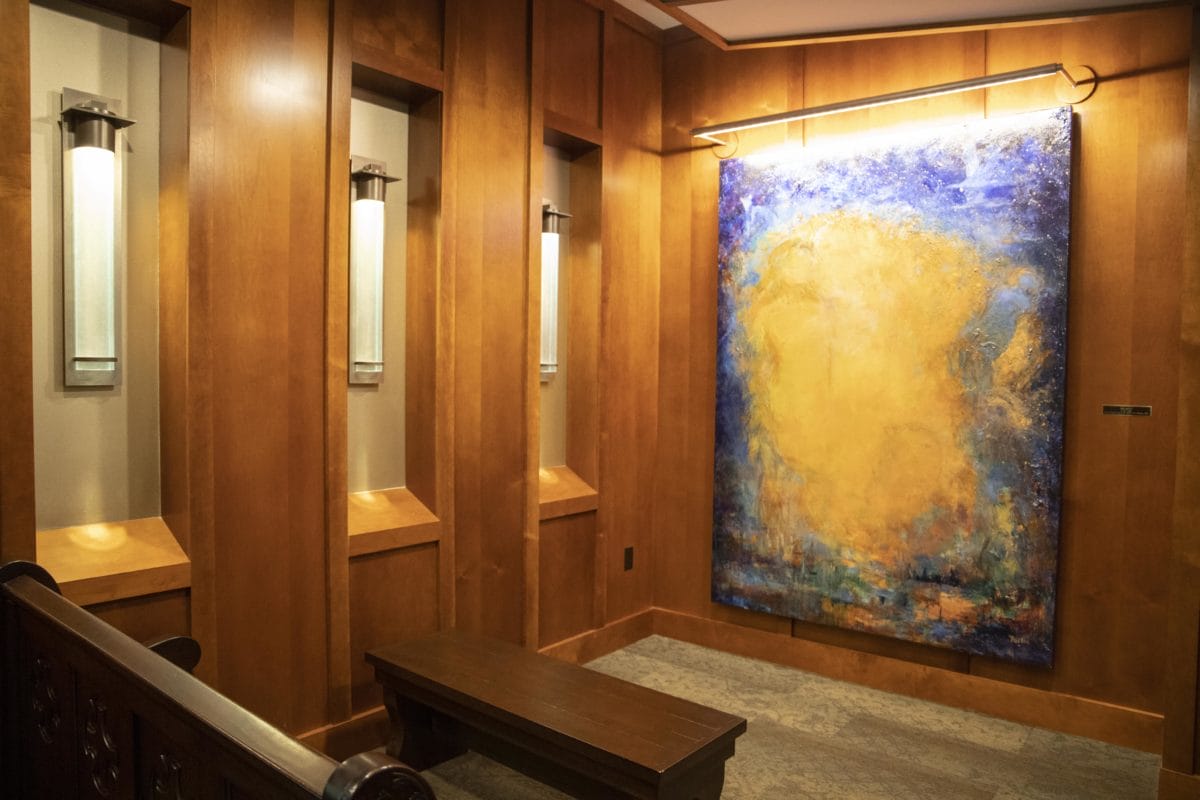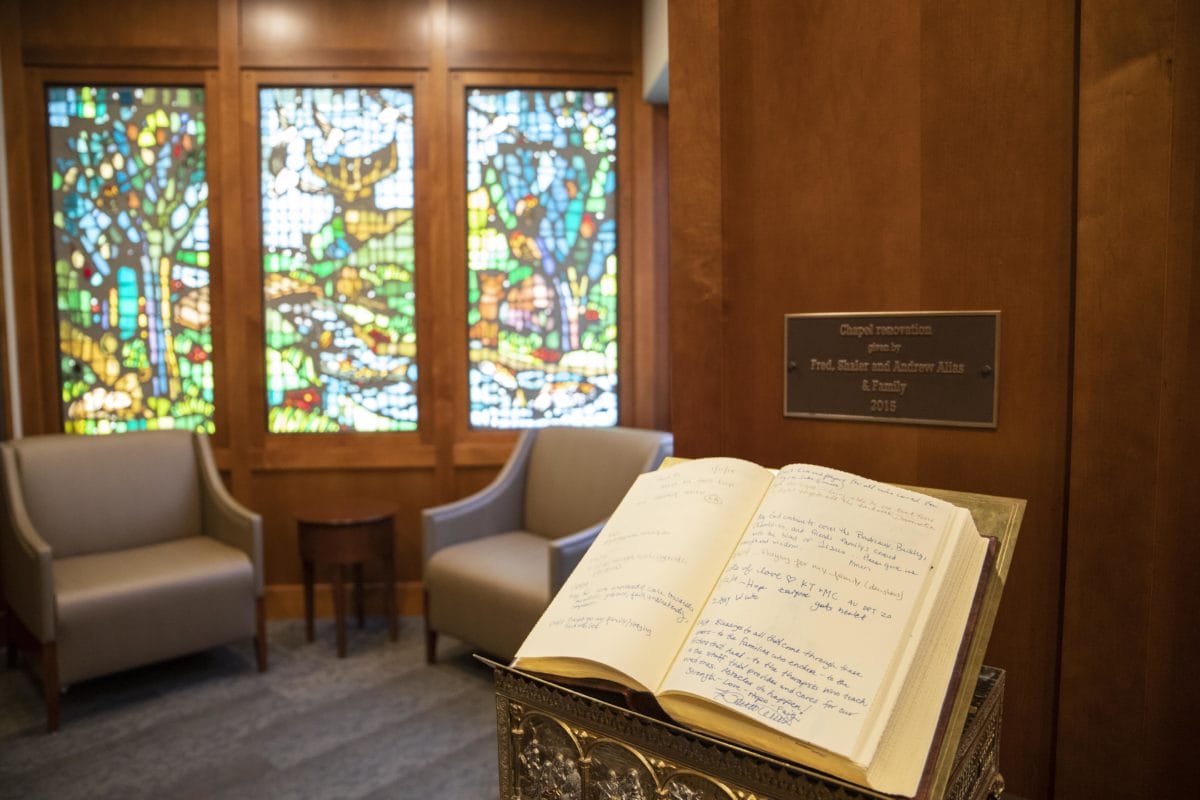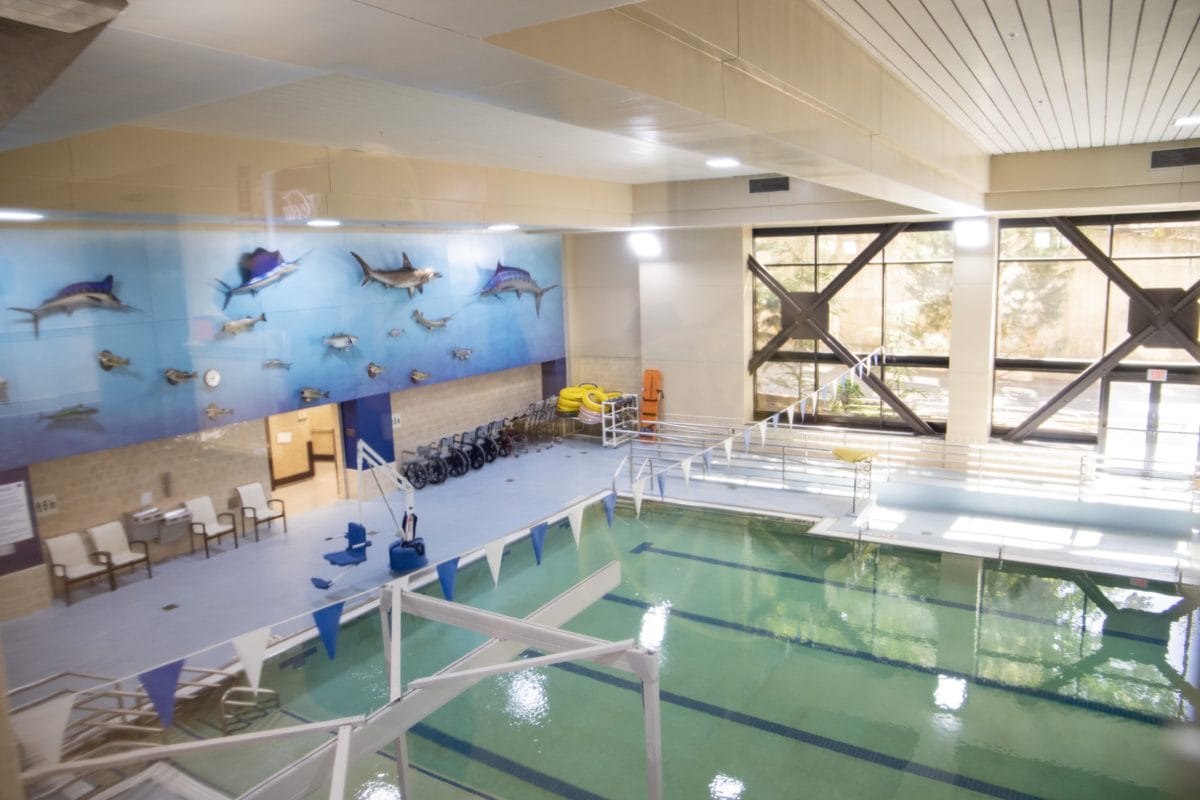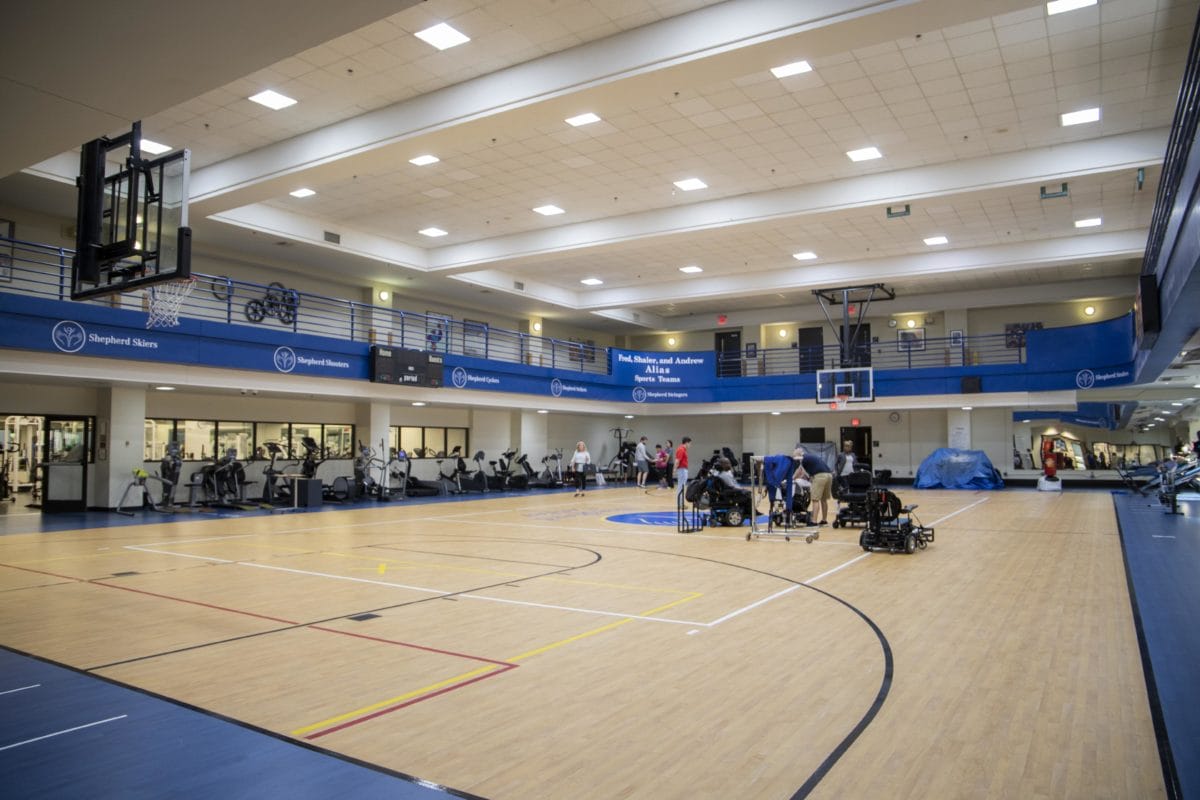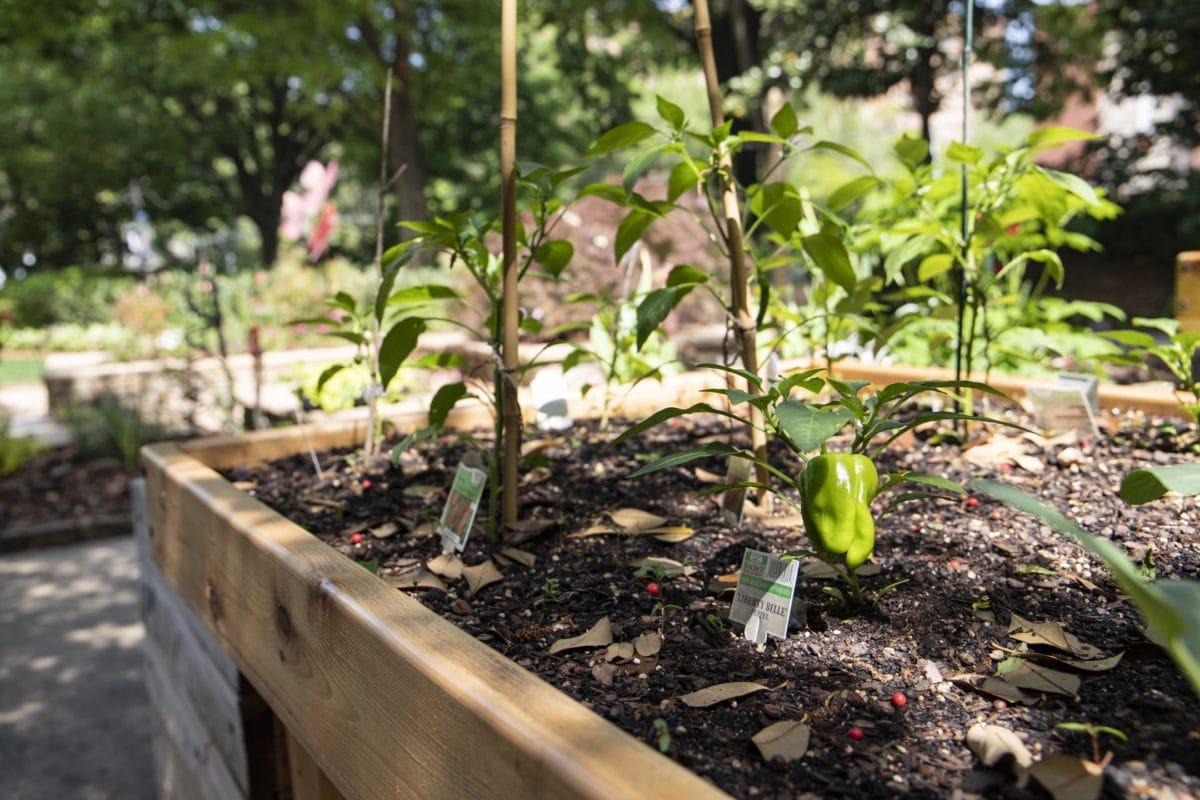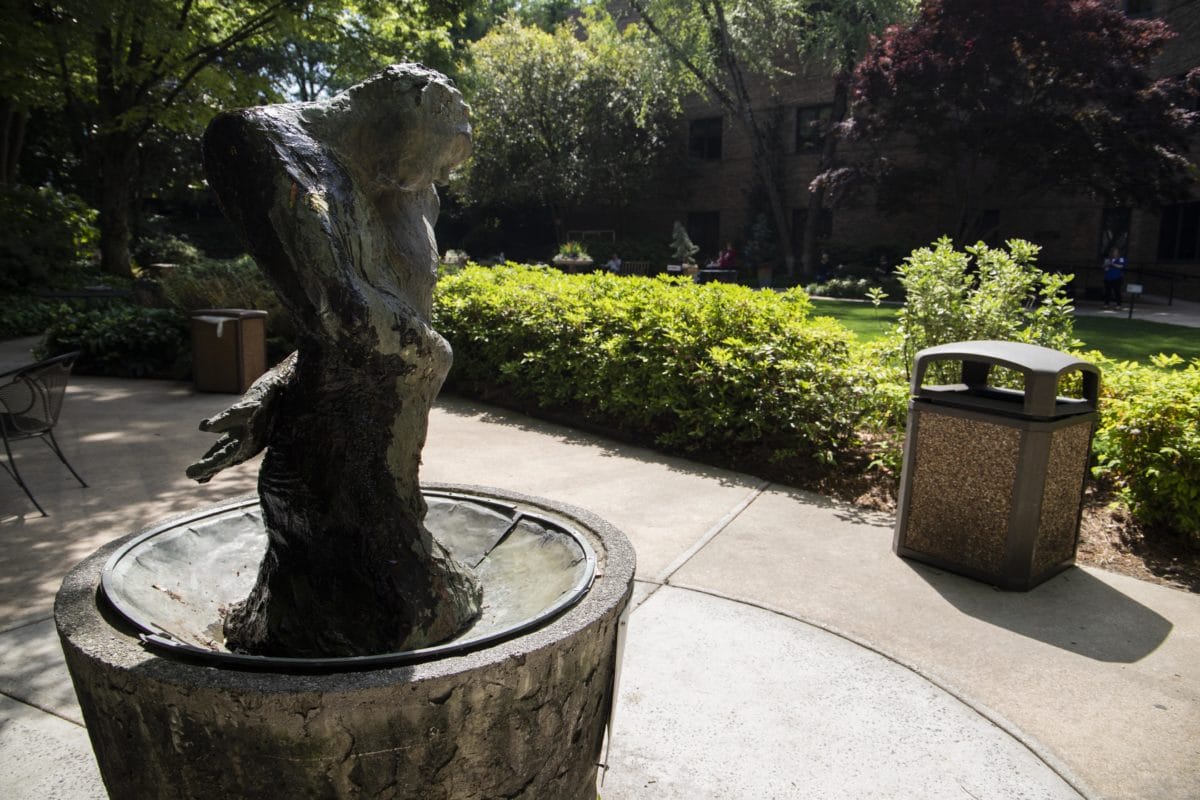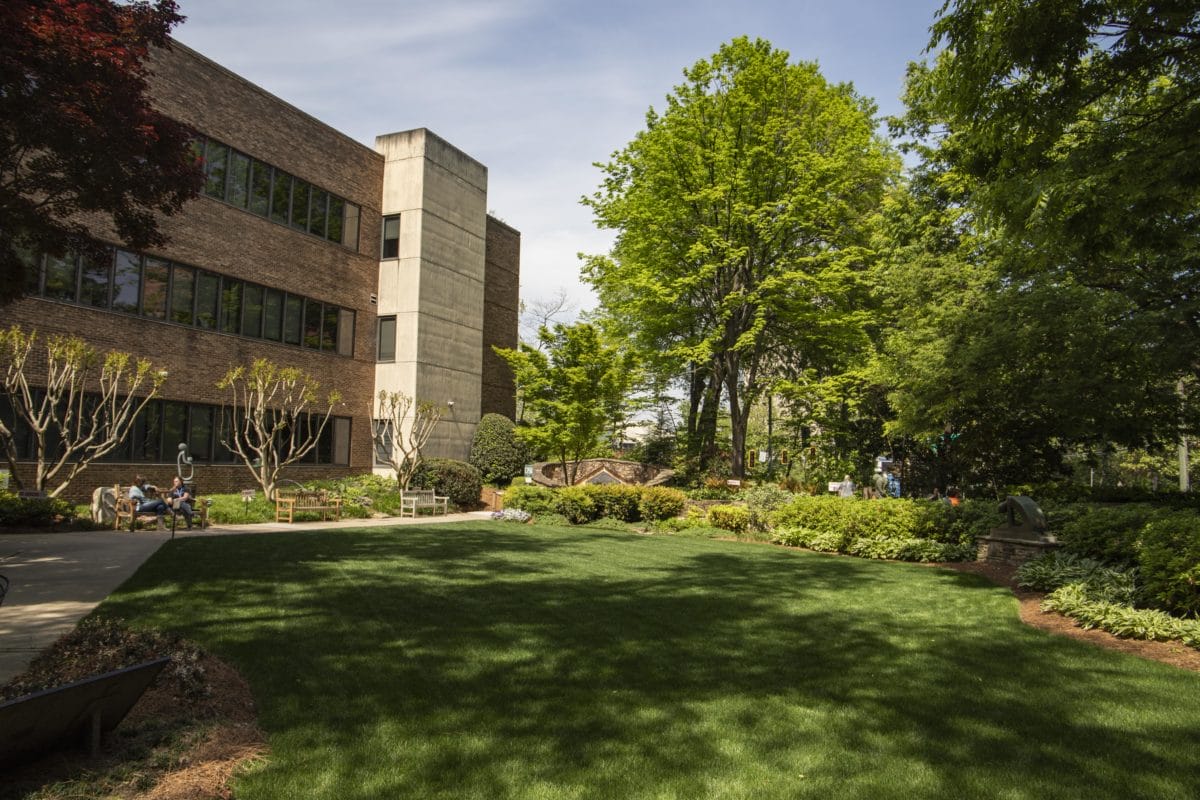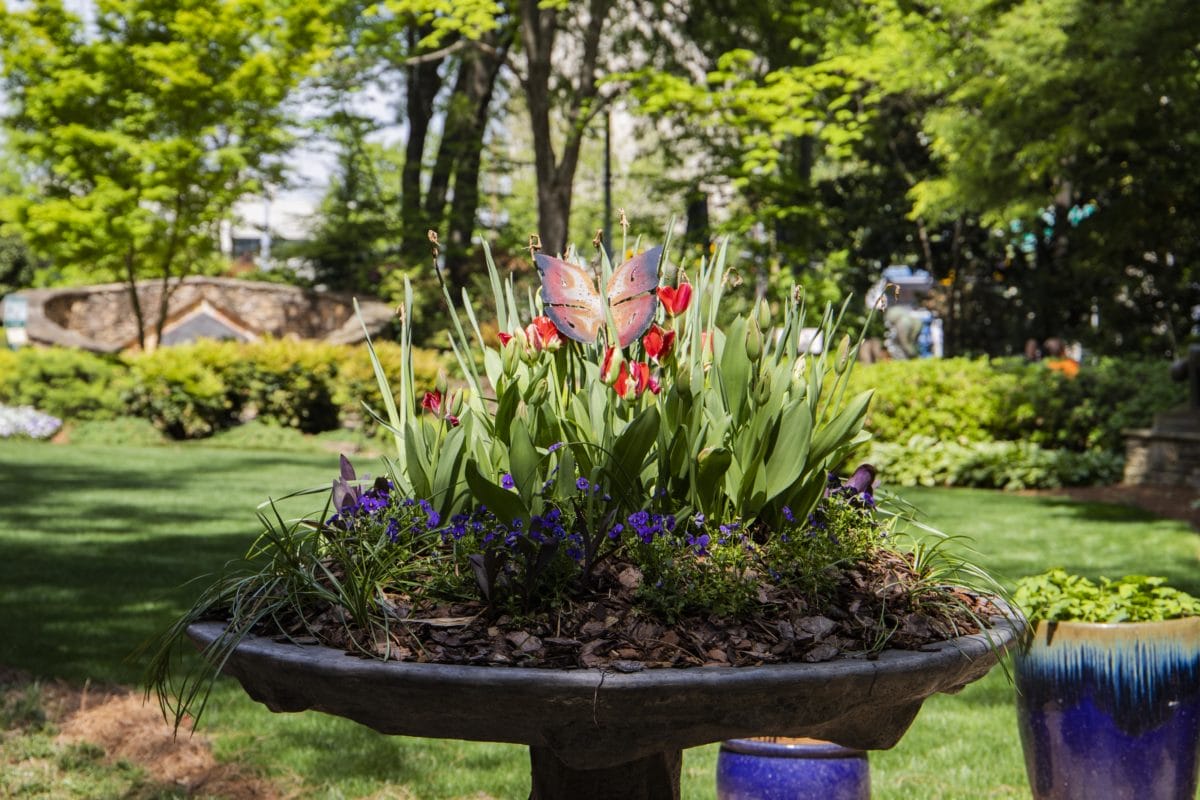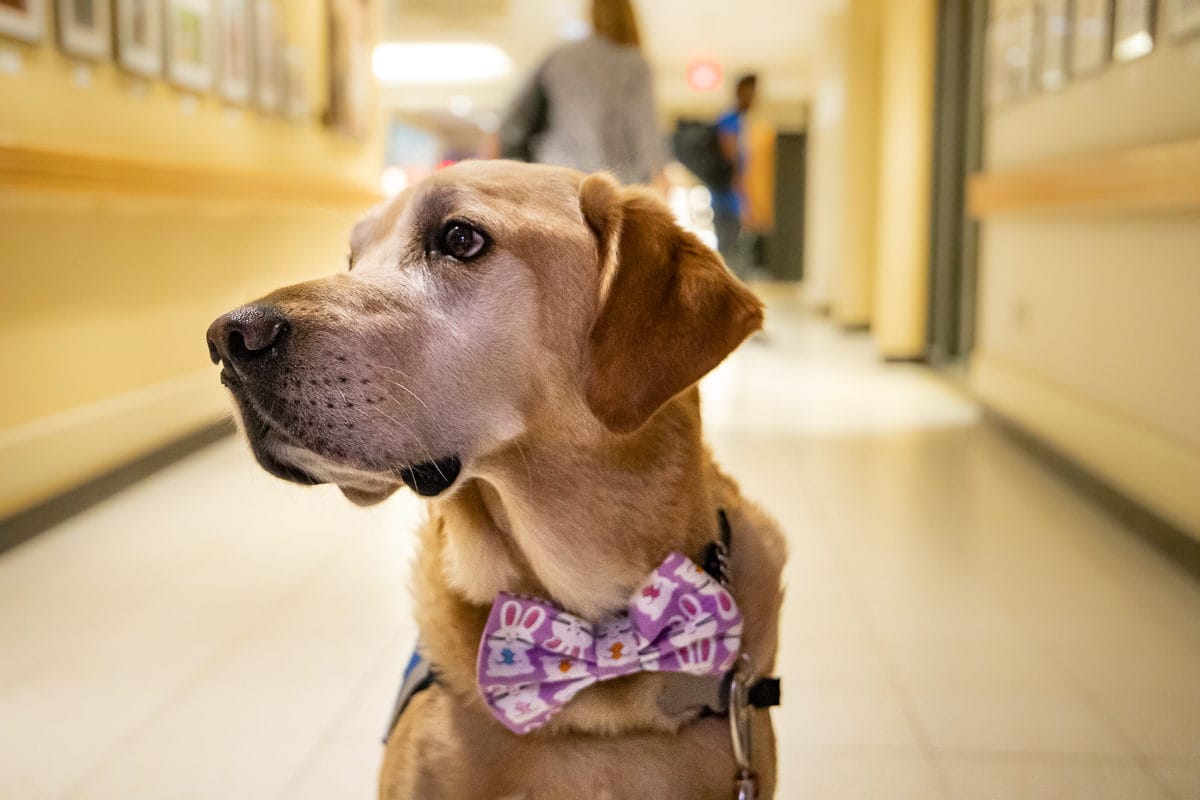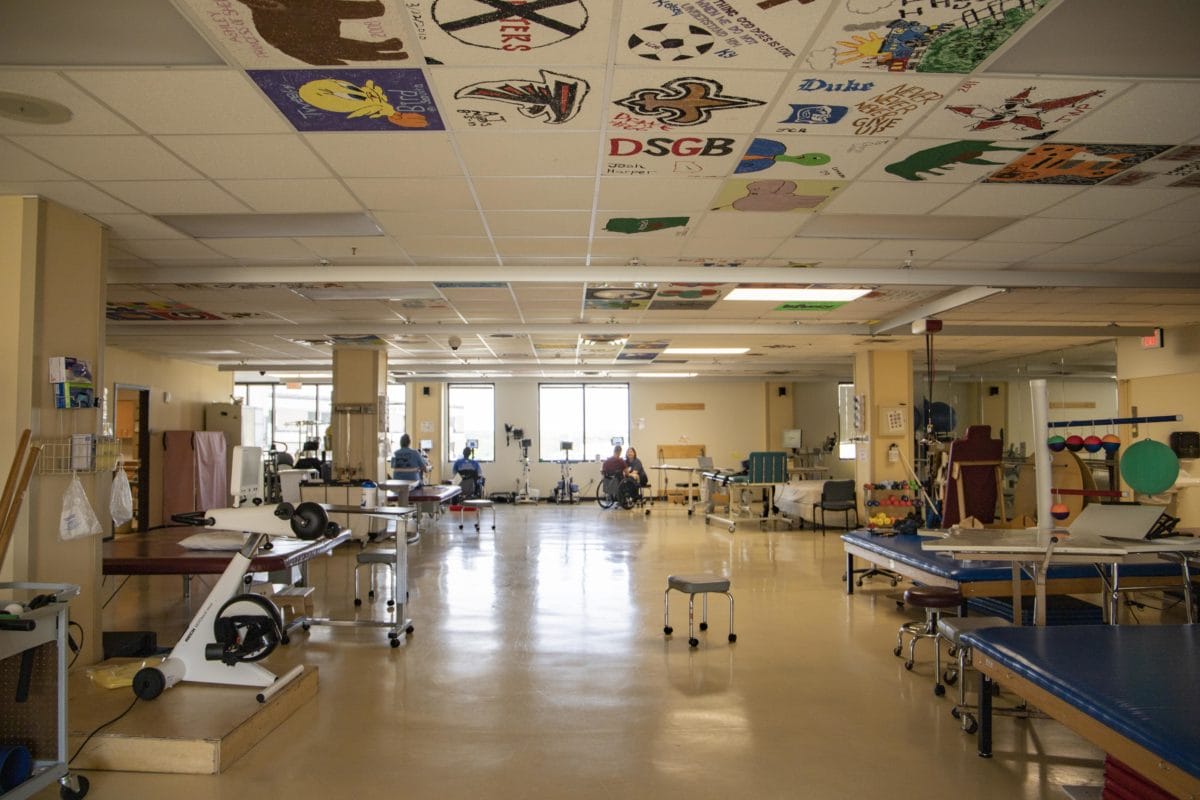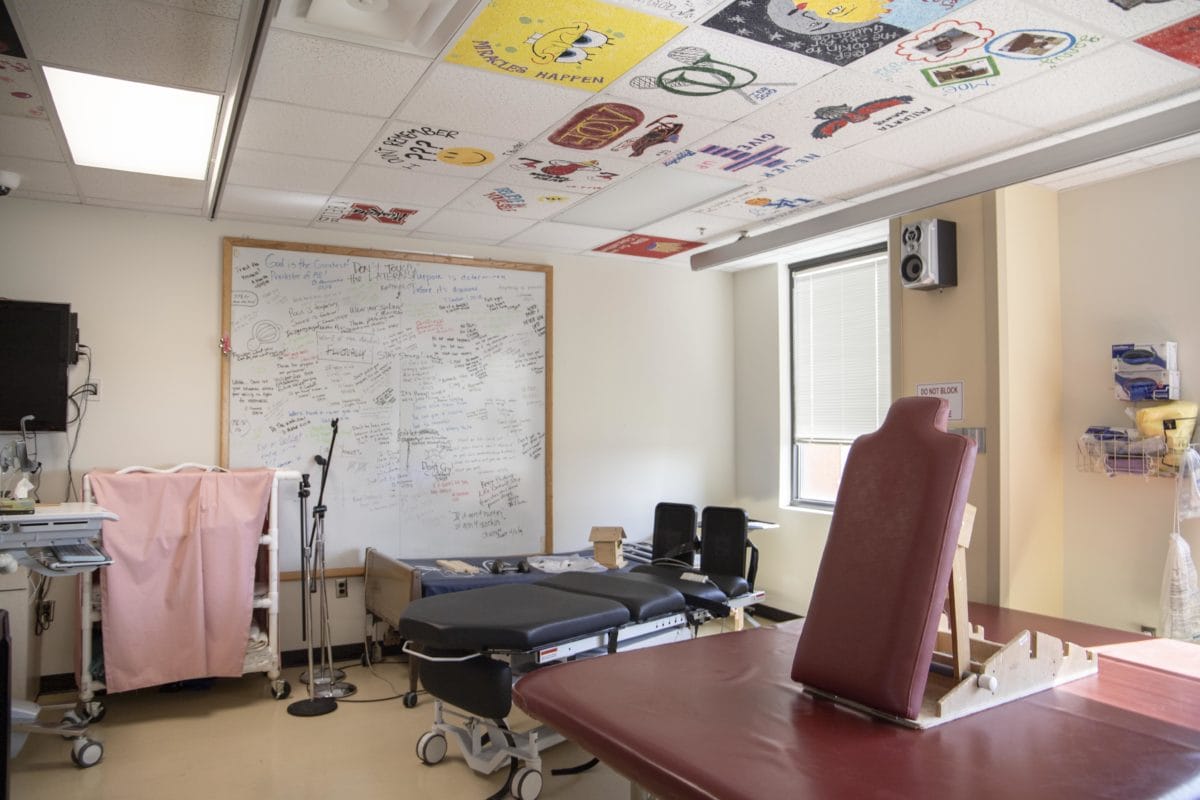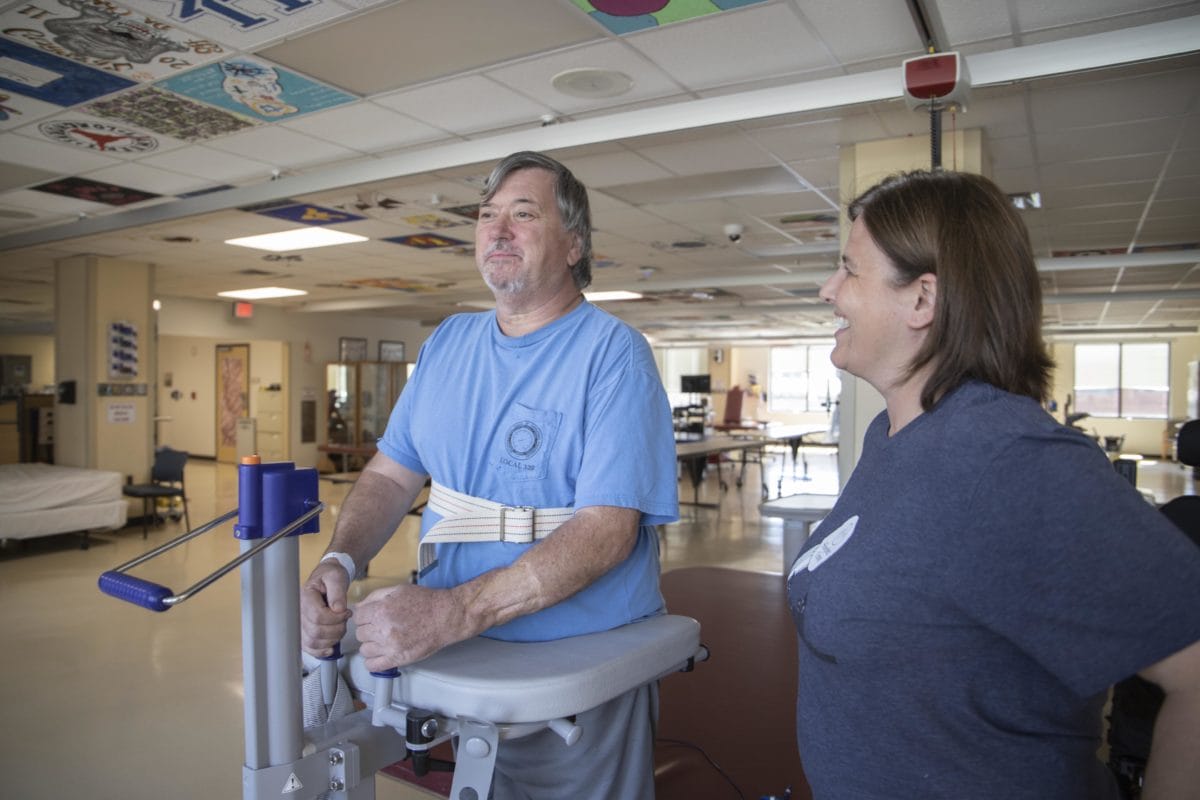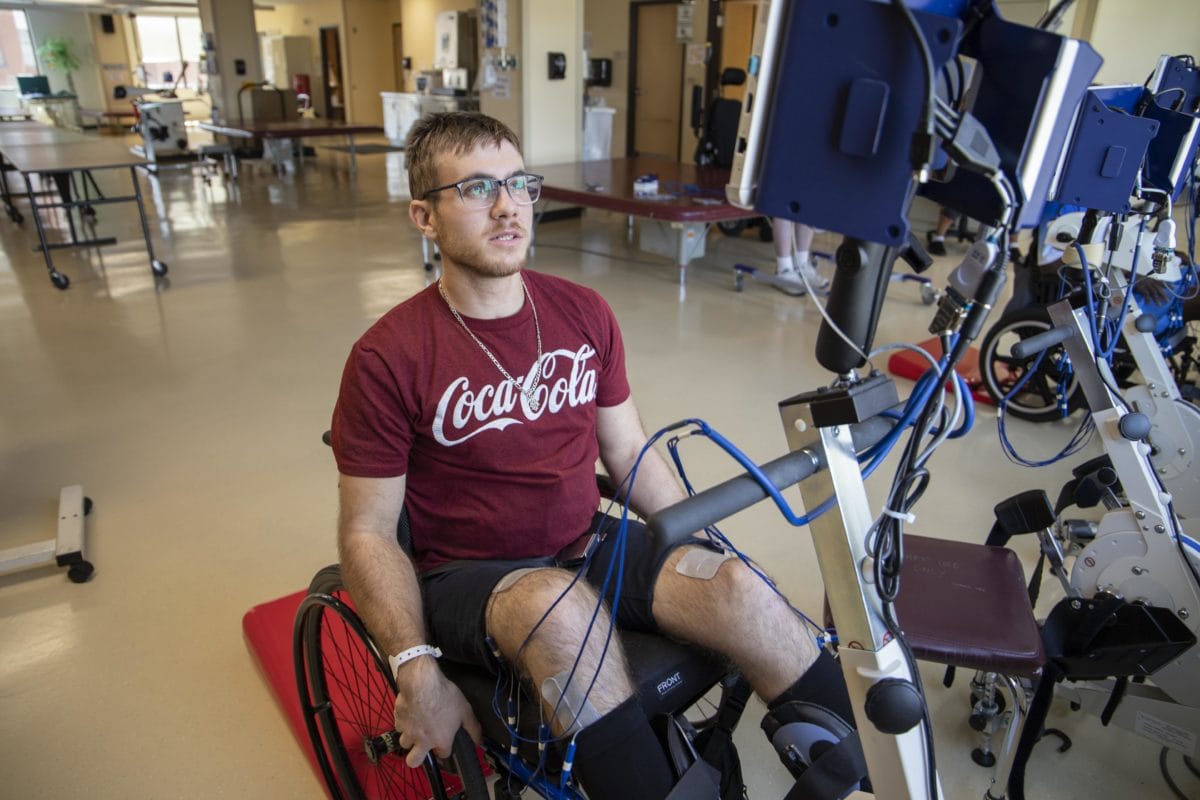For many who live in Buckhead the Shepherd Center is simply a blip on your morning commute. But for those who travel to this hospital from all around this country and the world to receive care there, it’s a literal life saver. Beyond physical care, medical procedures, prescriptions and physical therapy, the staff at the Shepherd Center are changing lives and giving back independence to injured people in new and revolutionary ways.
The facility specializes in spinal cord injuries and disease, brain injuries, multiple sclerosis, and other neuromuscular conditions. The hospital treats and rehabilitates patients with state-of-the-art assistive technologies, recreation therapy, locomotor training, and their Beyond Therapyⓒ program.
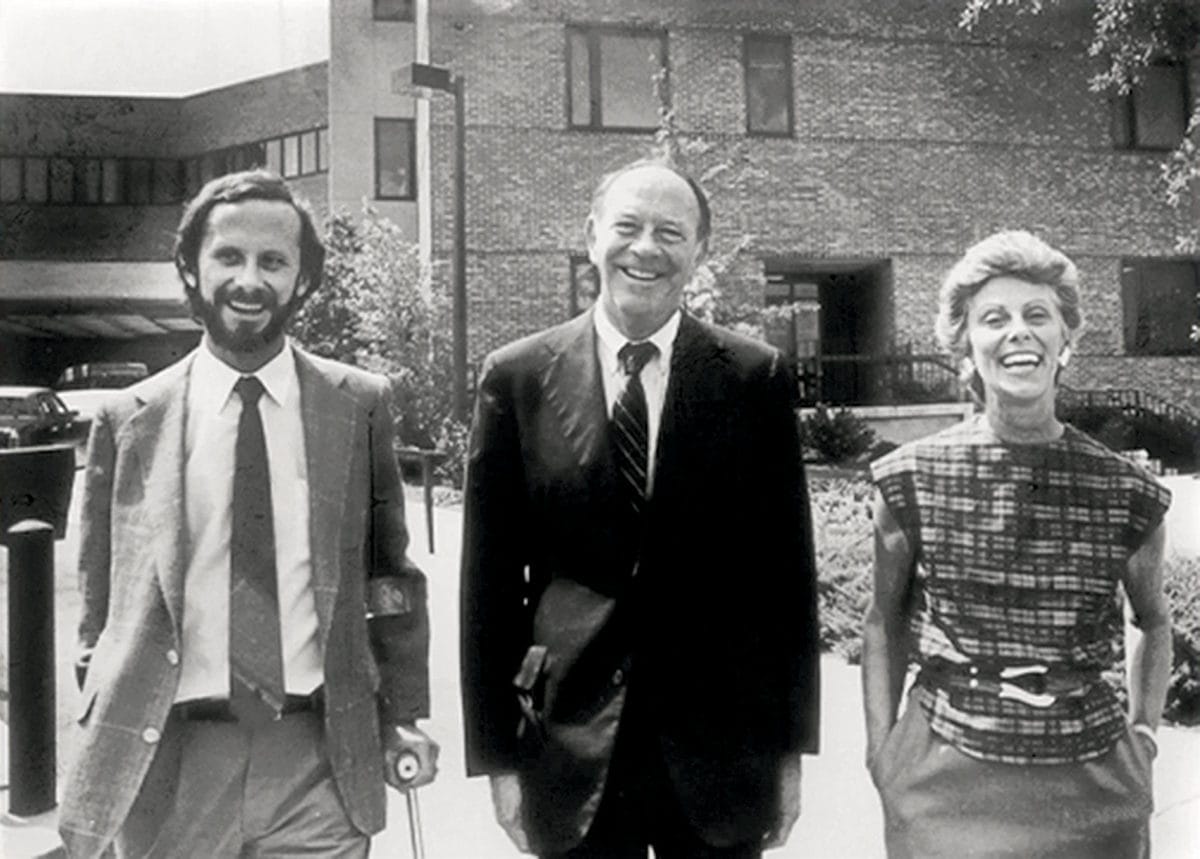
In 1973 Atlanta natives Harold and Alana Shepherd were struggling to gain adequate care for their son James who was seriously injured in a surfing accident in Brazil. The family rose to the occasion and got him the treatment he needed, consequently bringing together Atlanta’s medical and donor facilities to found the Center in 1975. Today, James serves as chairman of the board, Alana organizes fundraisers and is the recording secretary for the board, and Harold served on the Board of Directors until his passing last December. Recognized as a world-class facility, it has consistently ranked in the top ten rehabilitation centers in the nation by US News & World Report for the past ten years. The Shepherd Center is also one of 14 rehabilitation hospitals designated by the federal government as a “Model System” for care of people with spinal cord injuries.
Life-changing rehabilitation takes place here. Patients come to the facility on the worst days of their lives and gain a new lease on life during their stay. You see, the Shepherd Center not only addresses their patients’ physical needs, they also emphasize the importance of their overall mental and emotional well-being. The doctors, nurses, and staff here give their patients hope and friendship. They gain independence through interactive activities like physical fitness, community meals, group therapy, arts and crafts, and card games that support a sense of camaraderie at the center. Even those who work the reception desks have a way of greeting passers-by that infuses the atmosphere with warmth and a feeling of safety.
A Community Of Healing
The Shepherd Center grounds include a chapel, garden, fitness center, basketball court, pool, physical therapy rooms, and an arts center complete with throwing wheel. Next to the center is an apartment building where non-local families of Shepherd Center’s patients can stay during their treatment. The facility sees more than 900 inpatients, 575 day program patients, and 7,100 outpatients each year.

The center also sponsors 11 sports teams for individuals with physical disabilities to enjoy competitive and recreational sports, and the Shepherds were the driving force behind Atlanta hosting the 1996 Paralympics Games. The torch from that event hangs proudly near the gym entrance and evidence of the Center’s success can be seen in the numerous news articles and artwork lining the walls. A dry erase board in the physical therapy room is dotted with encouraging words from past patients and custom painted ceiling tiles above offer wisdom and levity for all those who pass through the facility.
A Day At Shepherd

On a recent Wednesday I was invited to shadow Dr. Anna Choo Elmers, M.D., J.D., a staff physiatrist in the Spinal Cord Injury Program at the Shepherd Center. She first worked at the Center as a resident in 2006, officially joining the staff in 2009.
Though Dr. Elmers is a natural fit for the Center and for healthcare in general, it wasn’t her first career. “I actually went to law school first and practiced for a couple of years, and it just really was not fulfilling for me,” she said. Later she went back to school at the George Washington University School of Medicine to get her medical degree and completed her residency at Emory. When she discovered the Shepherd Center she instantly felt that there was something special there.
Today, Dr. Elmers has an office desk drawer full to the brim with thank you cards and notes from past patients. “When they come here they get a new family, it’s just a different family,” she said. It’s not uncommon for her to get family updates and invitations to celebrations such as graduations and weddings.
Longevity is very common amongst Shepherd Center faculty. “The nurses who are here are here for a long time,” explained Dr. Elmers, who noted that the Shepherd family’s continued involvement, most notably Alana’s, encourages an atmosphere of loyalty. “It speaks volumes of the facility itself and then the culture that they are able to foster and continue.”
The Chief Nursing Executive, for example, started there in her early 20s as a tech and now 40 years later is the CNE. Their current CEO has also worked there for decades, and a counselor has been there for 30 years.
“I think a lot of that is the people who gravitate towards this kind of work get a lot of satisfaction from it. I have the most phenomenal therapists, nurses, just a really neat group of people that I work with. It makes the work overall very enjoyable. It’s not always rainbows, though,” Dr. Elmers said with a laugh. ”Your highs far surpass your lows. In a nutshell that’s kind of it.”
Doing the Rounds
Dr. Elmers specializes in working with adolescents that have suffered brain or spinal cord injuries. “Truth be told I don’t know if I could do what the patients here do day in and day out. It’s just such a- it’s a definite example of the resilience of the human spirit. It’s so resilient.”
She led me around the facility as she checked in with different patients, seeing how their pain was doing, inquiring about the results of their procedures, and reminding everyone about the group dinner that evening.
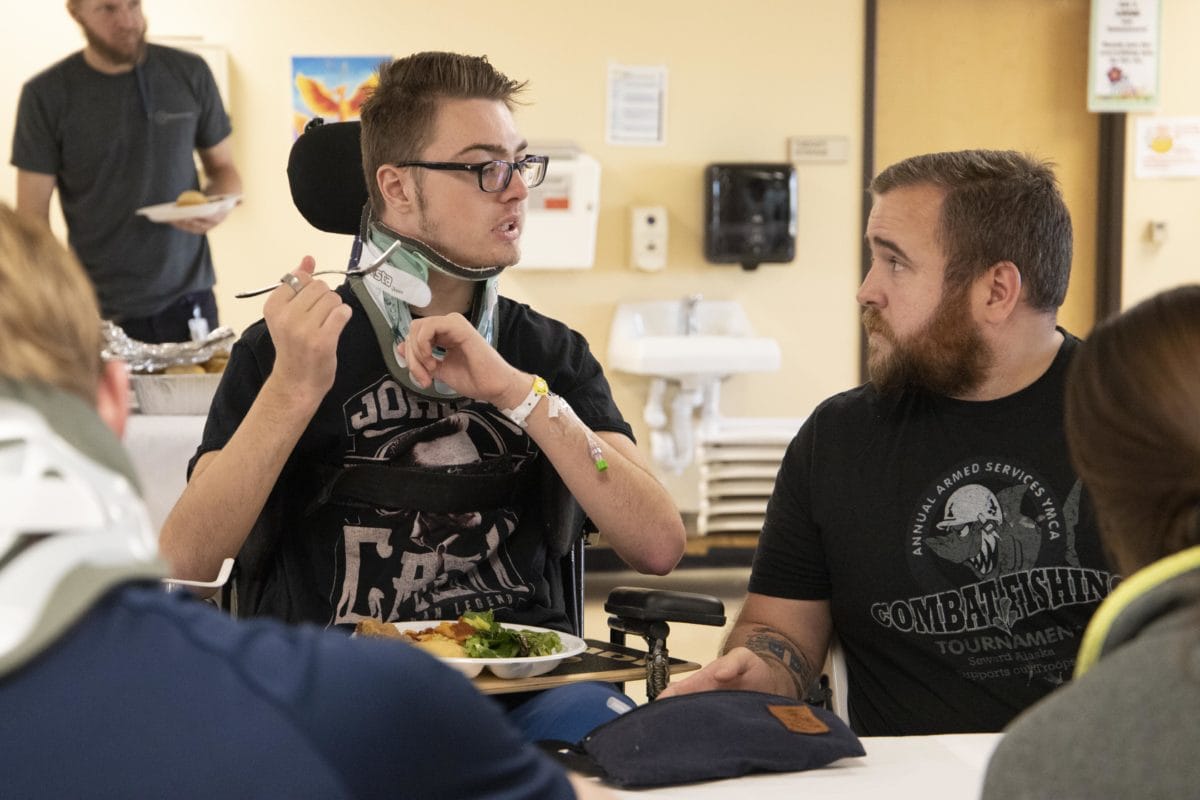
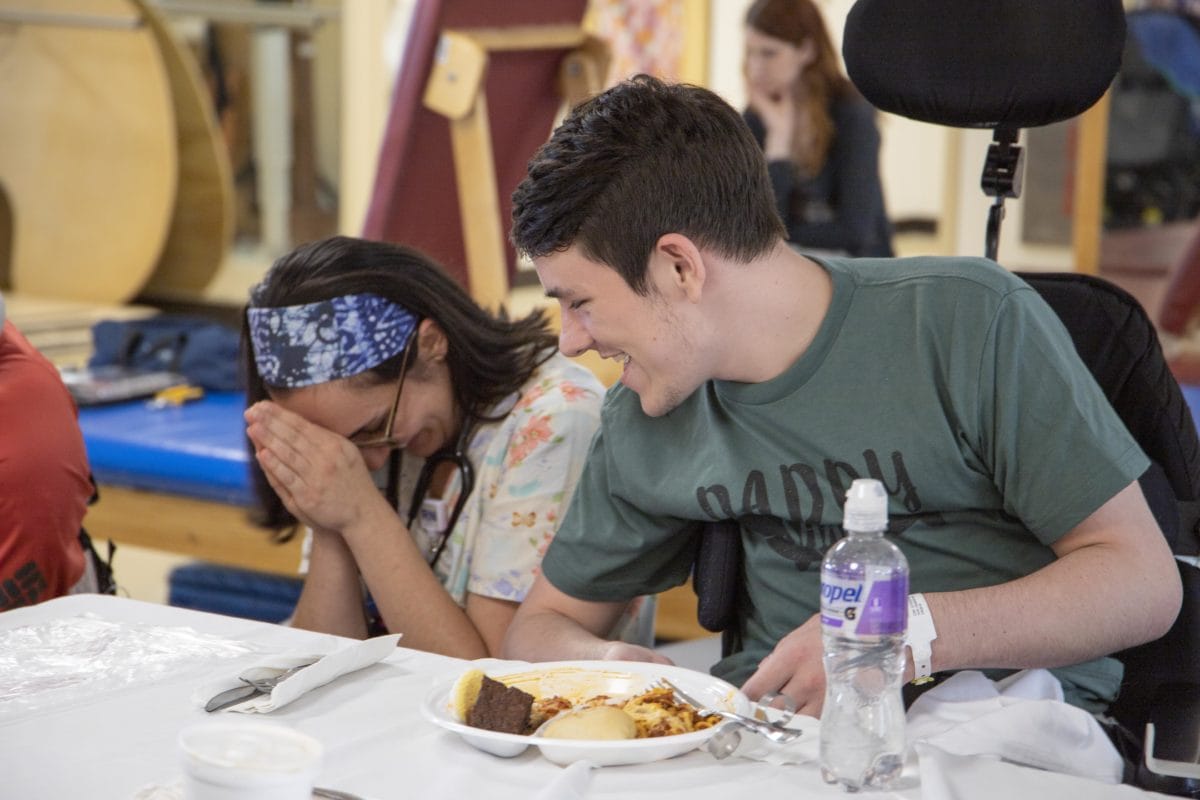
Several of Dr. Elmers patients were resting in their rooms while others were hard at work in the physical therapy room. The whirr from a row of stationary bikes filled the air. At a nearby table, a patient practiced sitting and standing with the help of a physical therapist and a support brace.
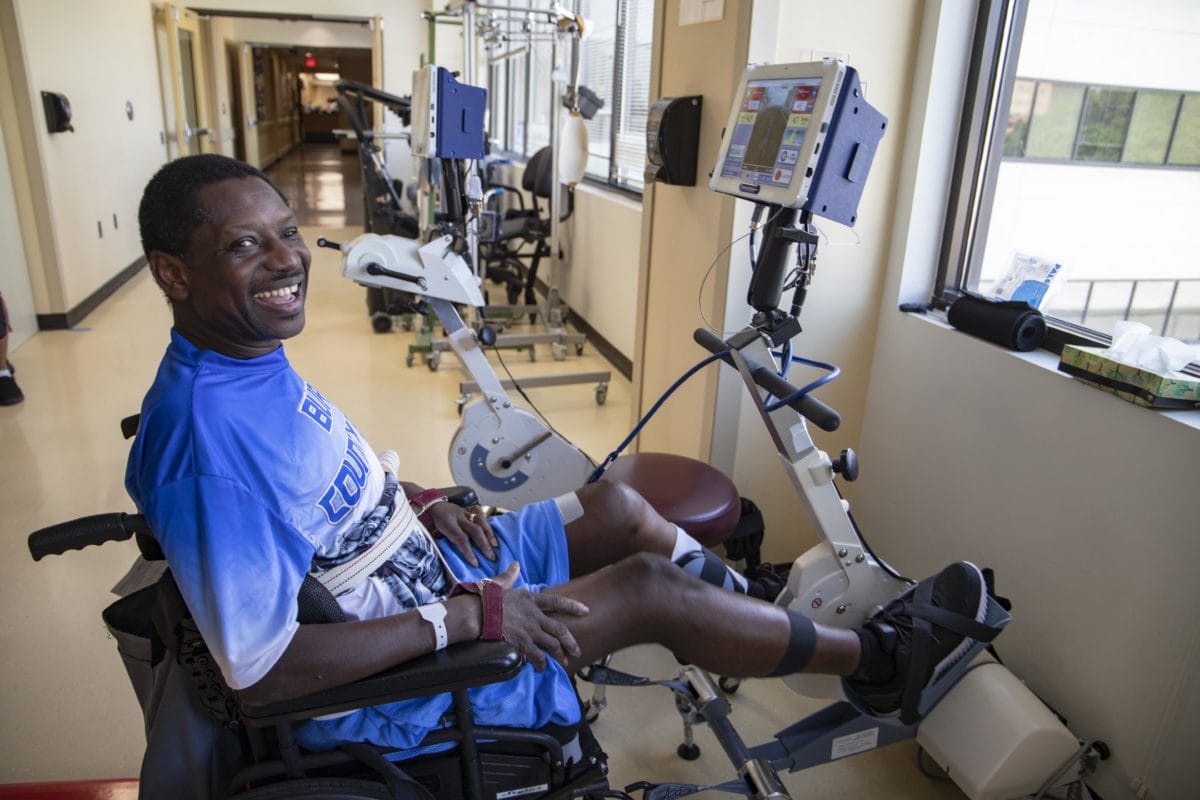
More Than Just A Hospital
Ryer Moore shared that his stay at the Center has been better than he expected and that Dr. Elmers has been an ‘outstanding’ doctor. “When I first saw her in the brochure I thought she’d be like any other doctor. Just, like, give me my medicine and then I won’t see her again, but I see her every day,” he said.
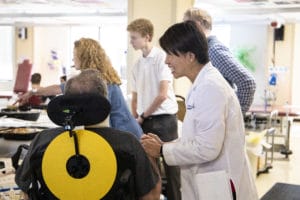
Dr. Elmers not only does daily rounds to check on her patients, she also sometimes touches base via text message, and she has seen great benefits of the weekly dinner club.
Every Wednesday, Dr. Elmers coordinates to have a full meal dropped off by volunteers in the gym and her patients get a rare chance to come down and socialize with one another, sharing their stories and making friends. Sitting around the long table with their loved ones, these dinners offer a unique sense of belonging and community for patients whose recoveries can often feel rather lonely.
“Coming here is like coming to summer camp. When you’re the new kid on the block you are so uneasy with who else is here so you come and don’t know anyone, then you go down to the gym and everyone else knows each other, so the dinner parties break that up,” said Dr. Elmers.
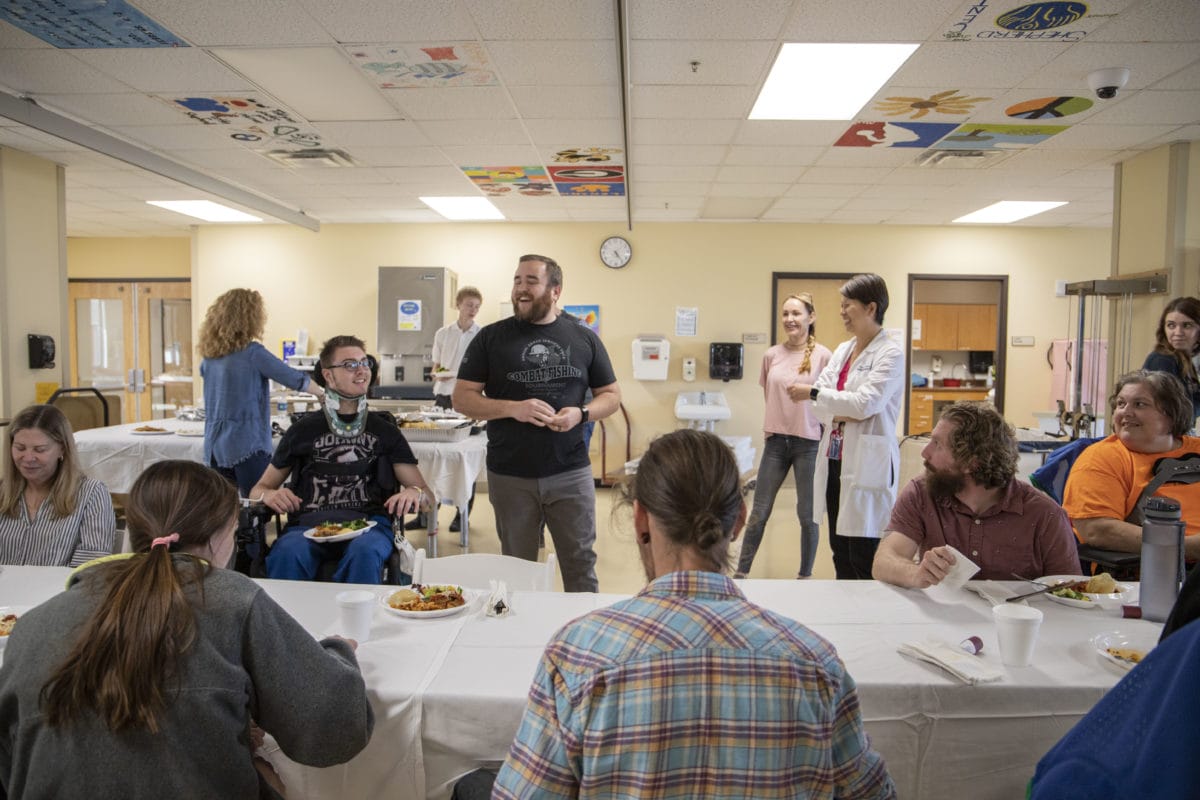
“You can definitely tell that the employees want to work here, that it’s not some 9 to 5 job where they come in and do their work and then just leave,” said Nicolas Woodard about the staff at the Center. “They definitely put in the extra mile and even staying after hours to not only just do the job but also build a relationship with their patients and people throughout the facility.” Nicolas particularly enjoyed late night Uno games with other patients and sometimes even nurses who would stop by after their shifts for a couple of rounds.
Previously unfamiliar with the Shepherd Center, Nicolas and his father Morgan have been pleasantly surprised by the atmosphere and treatment they have received at the Center. “What everyone kept telling us was ‘miracles happen there.’ I mean that was the one word everybody kept telling us,” said Morgan. Nicolas has since been transferred to a hospital in Seattle for further treatment.
In particularly trying times, when life has been forever altered by a devastating disease or injury, it is scary to undergo treatment and imagine a life after the hospital. The Shepherd Center and doctors like Dr. Elmers look at each patient as an individual person, and their treatments are carefully curated to suit their needs. Beyond physical needs of patients at the facility, programs such as Dr. Elmers’ weekly dinner club and late night game nights make recovery feel a bit more normal, and the future a bit less scary.
“It doesn’t feel like a rehabilitation center, it feels like a family up here,” said Ryer with a smile. “It really does.”

